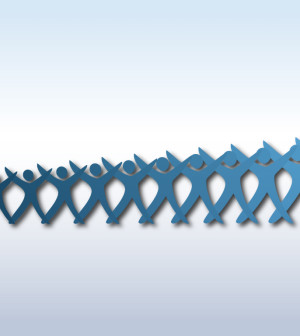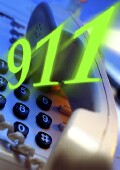- Are You Making This Expensive Thermostat Error This Winter?
- Recognizing the Signs of Hypothyroidism
- 10 Strategies to Overcome Insomnia
- Could Artificial Sweeteners Be Aging the Brain Faster?
- Techniques for Soothing Your Nervous System
- Does the Water in Your House Smell Funny? Here’s Why
- Can a Daily Dose of Apple Cider Vinegar Actually Aid Weight Loss?
- 6 Health Beverages That Can Actually Spike Your Blood Sugar
- Treatment Options for Social Anxiety Disorder
- Understanding the Connection Between Anxiety and Depression
Dispatcher-Assisted CPR Boosts Cardiac Arrest Survival in Kids: Study


The odds of children surviving cardiac arrest are better when emergency dispatchers give bystanders CPR instruction, a new study says.
The study also found that survivors were more likely to have good brain function if they received dispatcher-assisted bystander CPR.
Researchers analyzed more than 5,000 cases where children — infants to age 18 — received CPR after suffering cardiac arrest in a public place or at home. About 2,000 of the children received bystander CPR with a dispatcher’s instructions, about 700 received bystander CPR without a dispatcher’s help, and nearly 2,300 received no bystander CPR.
Children who received dispatcher-assisted bystander CPR were more likely to survive and have good brain function, according to the study published online April 30 in the Journal of the American Heart Association.
“Survival rates increased from 8 percent to 12 percent with bystander CPR and dispatcher instruction, a significant difference,” lead author Dr. Yoshikazu Goto, director and associate professor of the section of emergency medicine at Kanazawa University Hospital in Japan, said in a journal news release.
One month after sudden cardiac arrest, rates of good brain function were 81 percent higher in survivors who received dispatcher-assisted bystander CPR and 68 percent higher among those who received bystander CPR without dispatcher help, compared with those who received no CPR, the investigators found.
The researchers also noted that CPR with chest compressions and breaths is more effective in children who’ve suffered cardiac arrest than chest compressions alone.
“Expectant mothers should learn how to perform bystander CPR before they give birth. It is very important for parents, teachers and other adults who deal with children to learn how to deliver CPR to children,” Goto suggested in the news release.
Cardiac arrest in children can be caused by a number of factors, including choking, drowning, heavy bleeding, head trauma or other serious injuries, electrical shock, suffocation, poisoning and lung disease, according to the U.S. National Institutes of Health.
More information
The U.S. National Library of Medicine has more about CPR.
Source: HealthDay
Copyright © 2026 HealthDay. All rights reserved.










